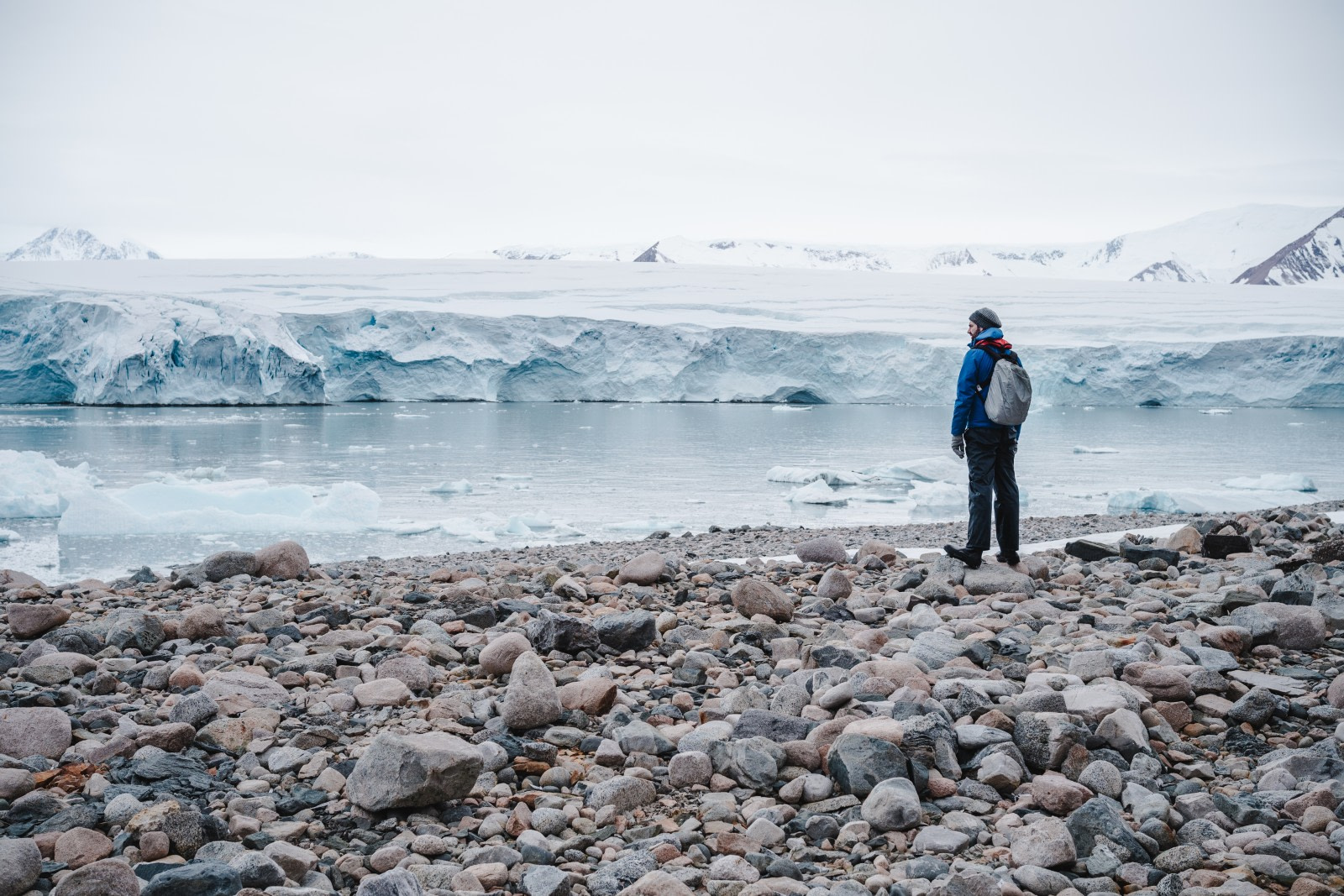How a trip to Antarctica inspired a film, album, and nature restoration project
In February of 2020, Dutch musician Ruben Hein embarked on one of our last expedition cruises before COVID-19 flatlined global travel.
The trip focused on Antarctica and the sub-Antarctic islands of South Georgia and the Falklands, making visits to a number of locations most people see only in photographs. These included whale-watching hotspots, penguin rookeries, and rare seabird nesting sites.
Some of the most sensorially stunning areas on the planet can be found along the routes Hein made during his trip, where he and our fellow guests took part in outdoor activities that put them into close contact with an utterly exotic environment.
Joined by German filmmaker Hubert Neufeld, Hein spent much of his voyage making a nature documentary called Sounds of the South, which premiered at a number of international film festivals. He also produced a new album, Oceans, based largely on compositions written during his expedition. And as if that were not enough, he and a friend began a website to restore biodiversity in the Netherlands, inspired in part by Hein’s experiences in the southern polar regions.
Since we’re always happy when our guests return from their voyages with a new sense of our planet’s beauty and fragility, we were naturally eager to have a chat with Hein about his trip and all the projects it inspired.
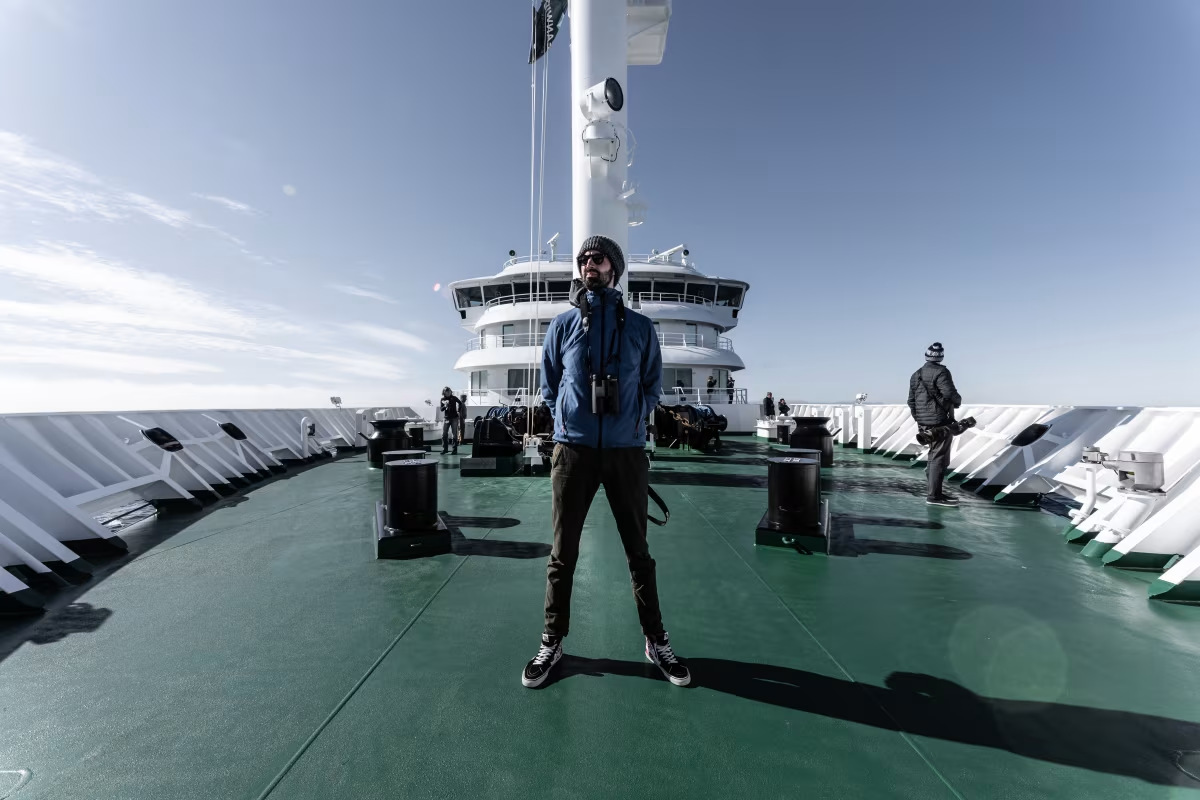
Picture by Hubert Neufeld
How did the Sounds of the South documentary develop during your trip, and did your expectations for the project change once you were there?
They did, because my expectations for the trip itself were so exceeded. It’s such an incredible environment, so different than what I’m used to – and I’ve seen quite a few landscapes. But Antarctica is so extreme.
So yeah, that sort of expanded the vision Hubert and I had for that documentary. But that mostly happened after we got back, because during the trip we were so charged with adrenaline. You can hardly grasp the impact everything you’re experiencing will have on you.
When you’re there, you’re like, “Oh my god, there’s this rare seabird a few meters away or a whale right next to the ship!” And you’re just absorbing it all so closely that you can only really reflect on it once you’re back in your usual environment, which was not exactly the way it turned out.
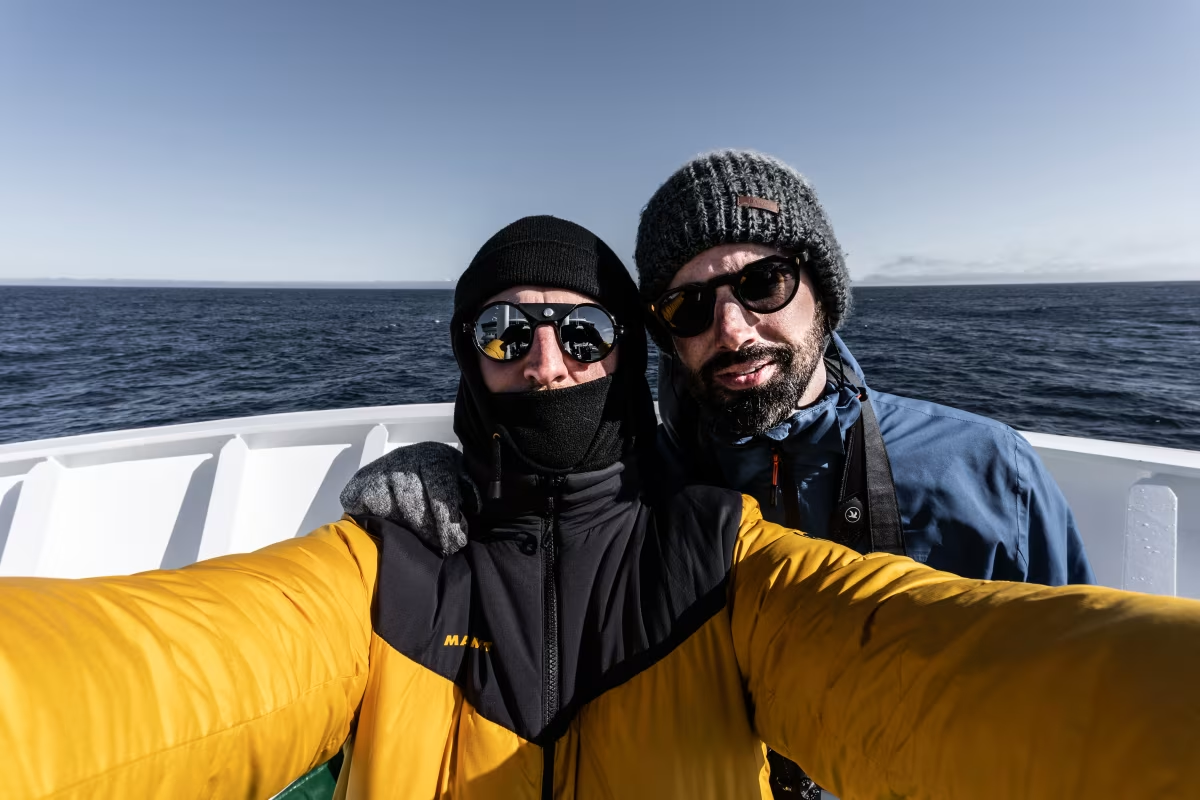
Picture by Hubert Neufeld
Because of COVID.
Because of COVID, which did give us the advantage of having a lot of quiet alone time to take in all these moments I had on the trip where I felt like I made contact with nature. It took a while to process, all of that. And it definitely changed our vision for the film.
When we first went on the voyage, we didn’t really plan to make a big documentary. The plan was to make a short film of about 15 minutes. But when we got there, we found there was so much we wanted to show and wanted to tell that we decided we had to go for something longer. But again, a lot of that we realized only after coming back and reflecting on what we experienced.
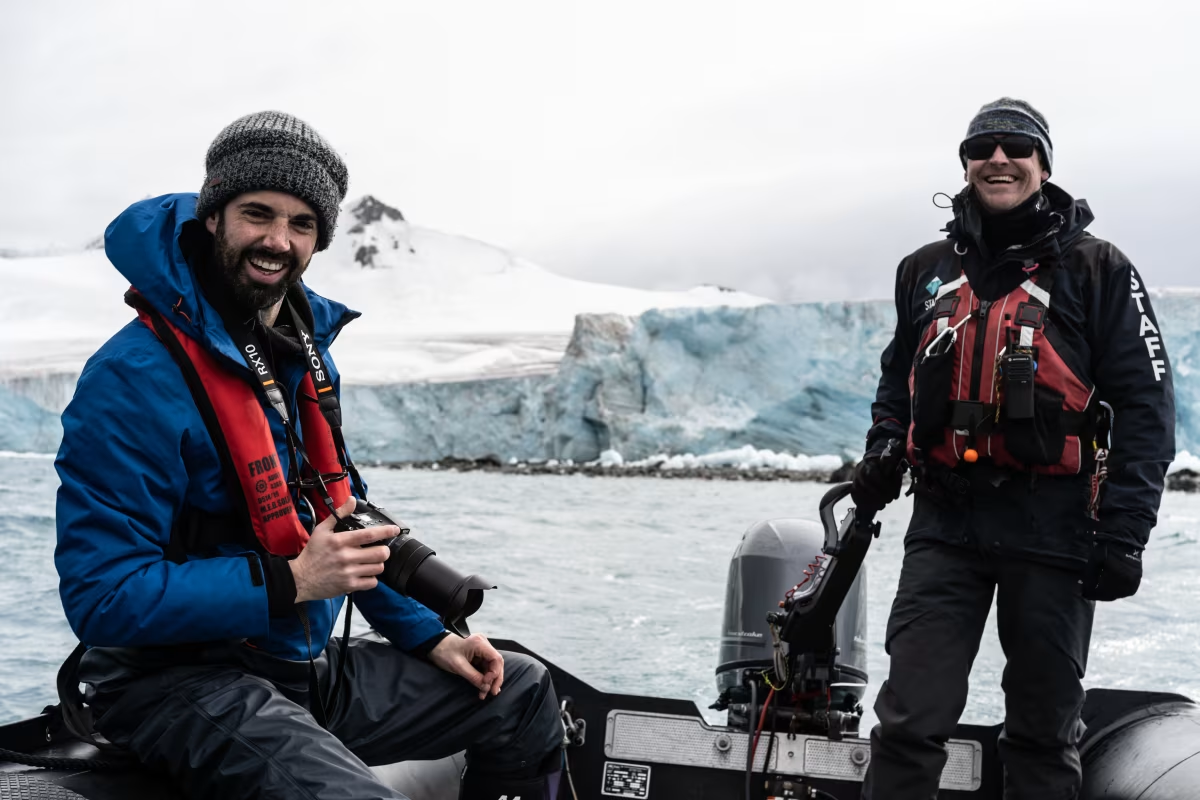
Picture by Hubert Neufeld
Was it the same with the Oceans album?
Yes, in a way. When the ship was surrounded by whales and penguins and leopard seals and icebergs, I wouldn’t have my nose in a notebook. I didn’t want to get too intellectual about it. I would wait until it was dark to write most of the music.
But most of the work happened once I got back, once I had enough compositions to draw from. It’s usual for an album to write 30-plus songs and then use nine or ten, and Oceans was no different. The creation of the album and documentary were kind of the same in this way, and they also both rose out of the feeling that I need to give something back through my work.
The Antarctica trip made it clearer how I could do that. I always want to find a way to combine my love for music and my love for nature, and I was in search of how I should do that. And the trip forced me into doing it and having a voice on climate change and the loss of our biodiversity.
And so it’s quite radically changed my career, which I’m very happy with personally and career-wise. I loved using lyrics that were inspired by certain moments on the trip, like when we poured whiskey on Ernest Shackleton’s grave at Grytviken.
I also have a song called Lemaire about visiting the Lemaire Channel and feeling so incredibly small and vulnerable and grateful. There are a lot of other things like that in album, little references people will notice if they know about the areas we visited. If I hear those songs today, I am immediately back in Antarctica.
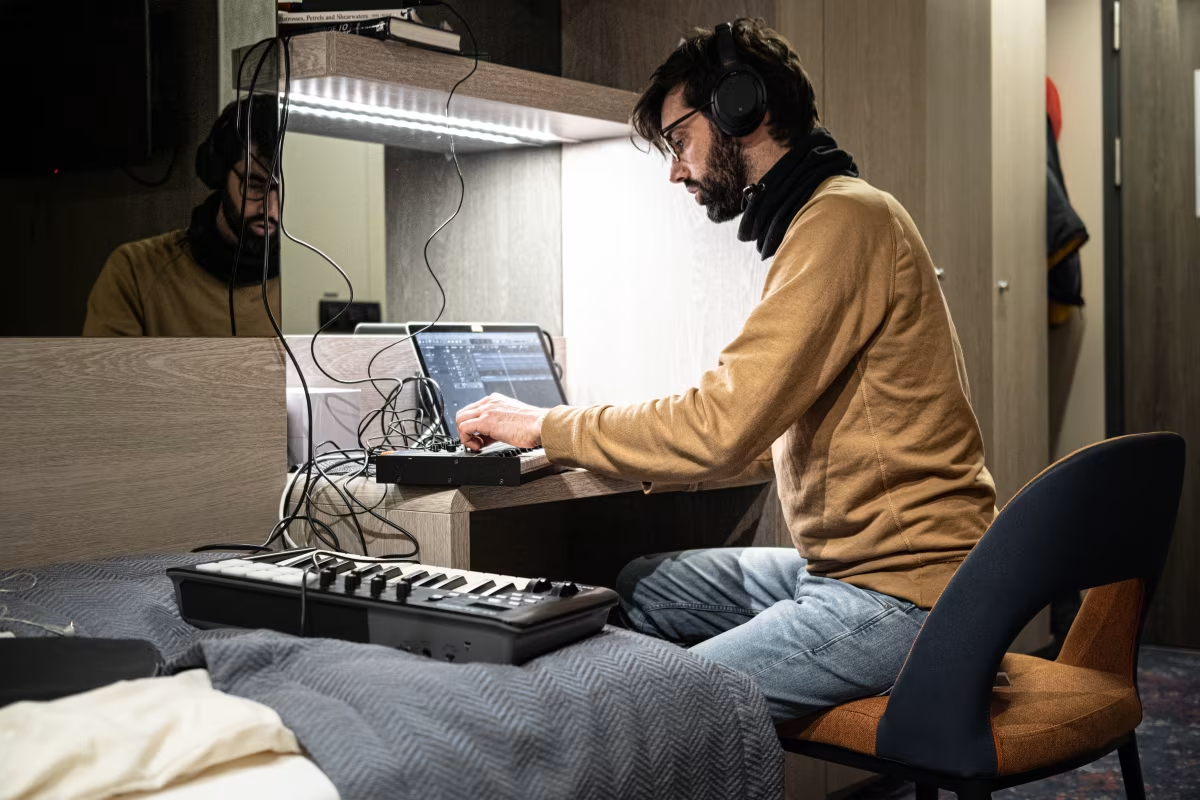
Picture by Hubert Neufeld
Your nature restoration project, Aanpoten, came a while after the documentary and album. How connected was it to your experiences in Antarctica?
It was very connected. When I came off the ship, we made the documentary and album, but somehow that didn’t seem enough. I didn’t want the whole experience to end there. Sure, we did little things like wrap the album in paper you can plant in the ground and it will grow butterfly-friendly flowers. You’re not going to save the planet with that, but it’s something.
But I think I was still interested in doing more. Then later I was talking to a friend who is a great nature filmmaker, and he had transformed a piece of land from meadow into a miniature nature reserve. I thought, “Why can’t we start a project to do that?”
Biodiversity is something we lack here in the Netherlands. Everything is straight and surrounded by fences or barbed wire. We’re also a densely populated country, but there are still a lot of land people own, and they want to do something for nature but they don’t know what.
So that’s what motivated Aanpoten. People can either donate land where we can plant indigenous shrubs and trees, or they can donate money so we can buy shrubs and trees and reimburse the volunteers who plant them.
We choose all native plant life, and specifically we’re interested in vegetation that is attractive to animals and insects and has high carbon-capture ability. When we reach our goal, we’ll set a new one and keep going. And so far it’s going really well, which is great.
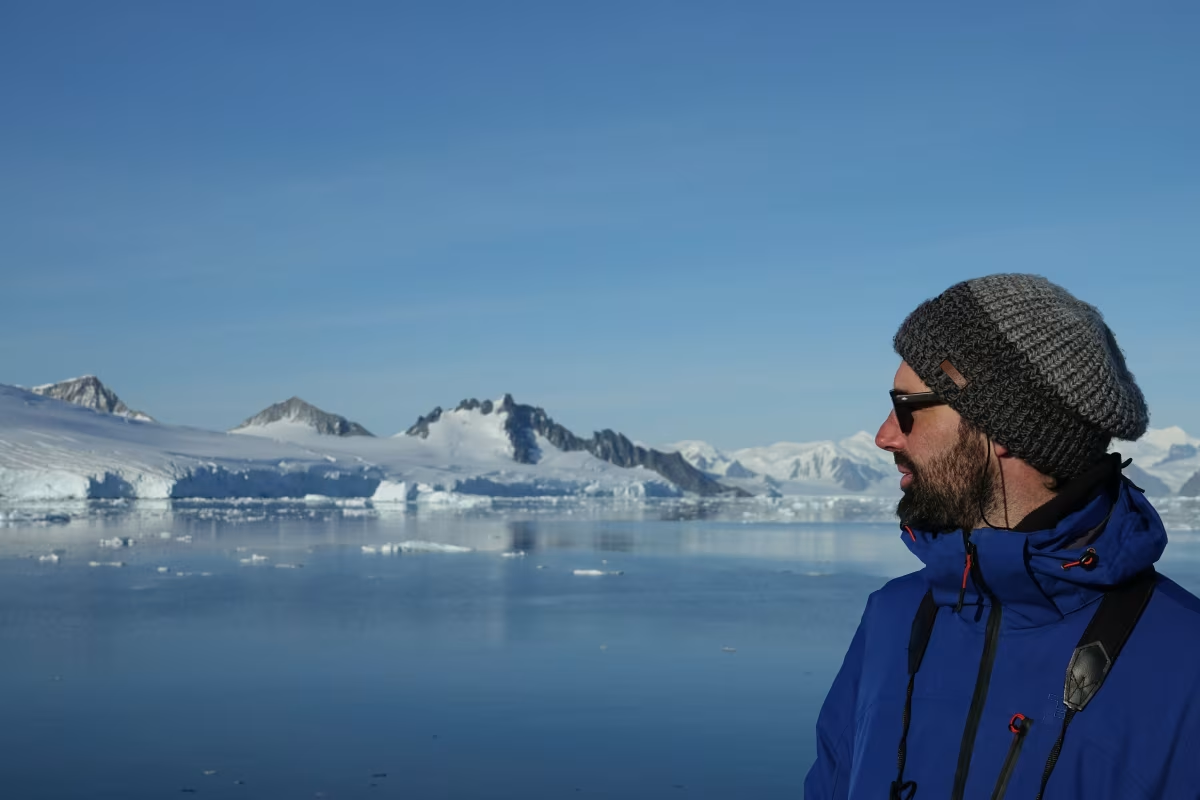
Picture by Ruben Hein
We always love learning that our guests have become environmental ambassadors after their voyage. Is it safe to say something similar happened to you?
I remember hearing that thing about ambassadorship before I left, and it was constantly in the back of my head during the trip. I remember thinking, “Yeah, whatever you say.” It just sounded kind of fake to me, like marketing hype. And it is until you’re there.
There’s no reason for me to say this because I’m not commercially linked with Oceanwide in any way, but I can honestly say from the bottom of my heart that the voyage changed my life. It changed my view on where we stand as humans, especially compared to the rest of the animal world. And I noticed the same reaction with a lot of the other passengers.
Not everyone felt that way, of course. There were some people who seemed to only focus on what they weren’t getting. I remember one guy kept complaining about not seeing a whale soon enough. I felt like tossing him overboard. It’s not McDonald’s, you know?
But then there were other people who had saved their entire lives for the voyage and were always smiling. They were in on everything. They were the first ones into the Zodiac and the last ones out. They took everything in and seemed intensely grateful just to be there.
Those were the people I related to, the people I identified with. Because we are so insanely privileged to be able to go to places like that. Everything you see there is amazing, and everything reminds you of how much it needs to be protected.
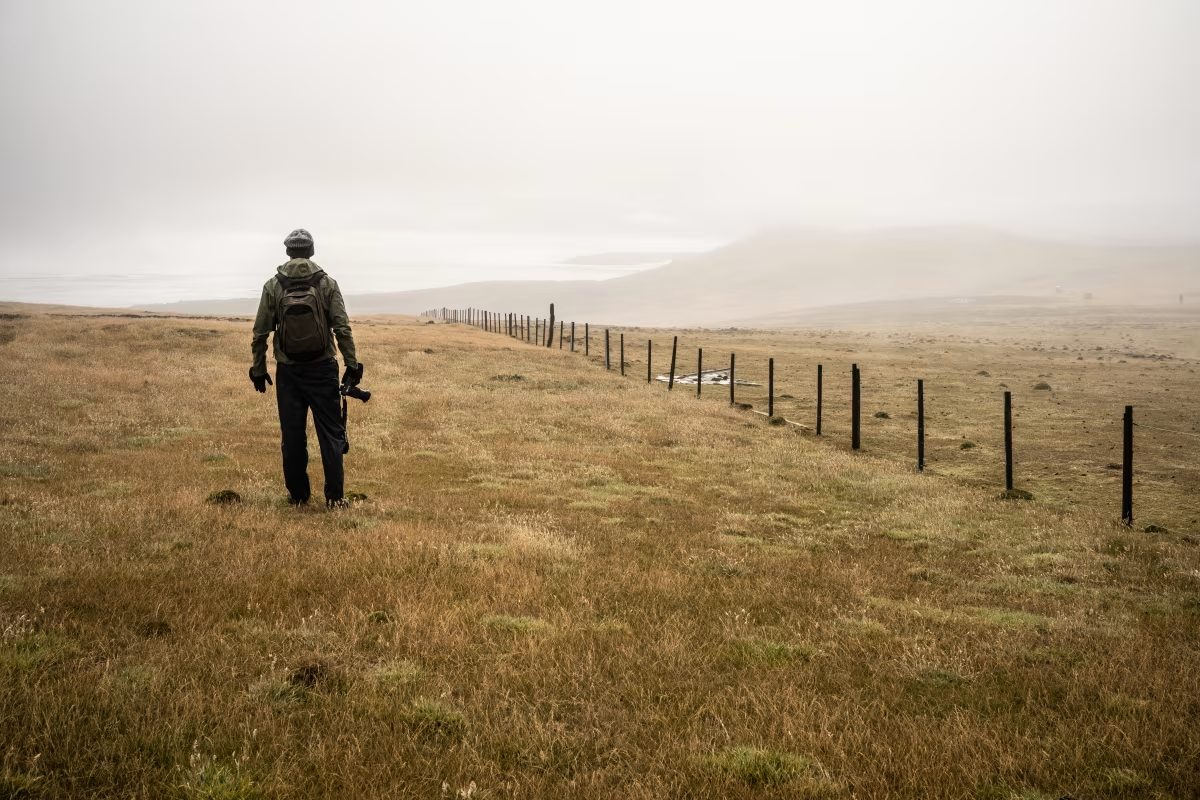
Picture by Hubert Neufeld
Main image by Hubert Neufeld
